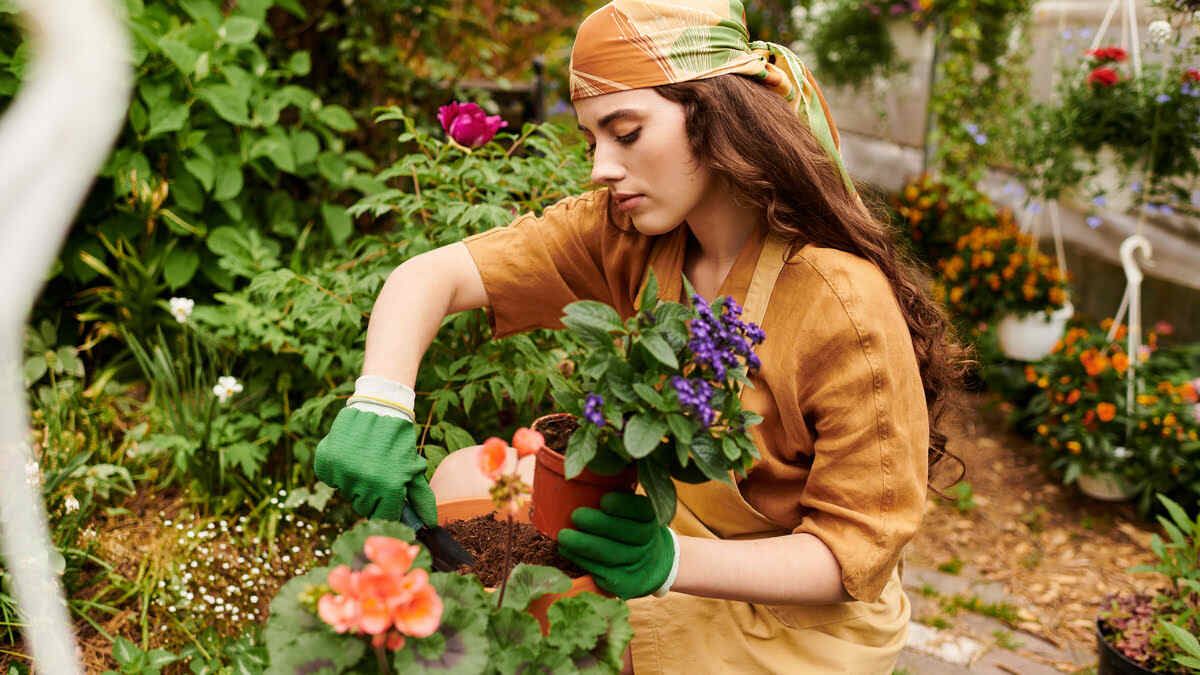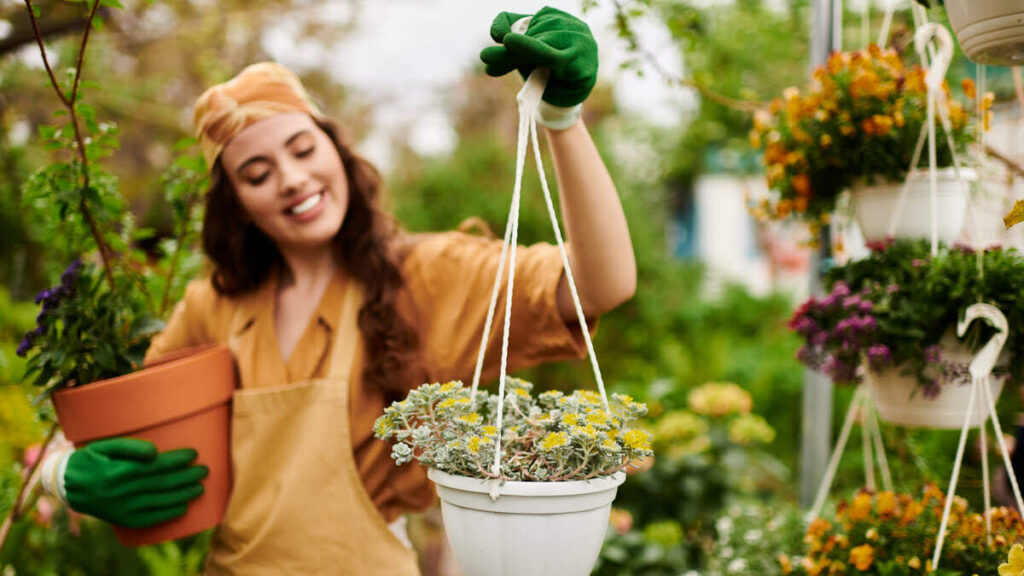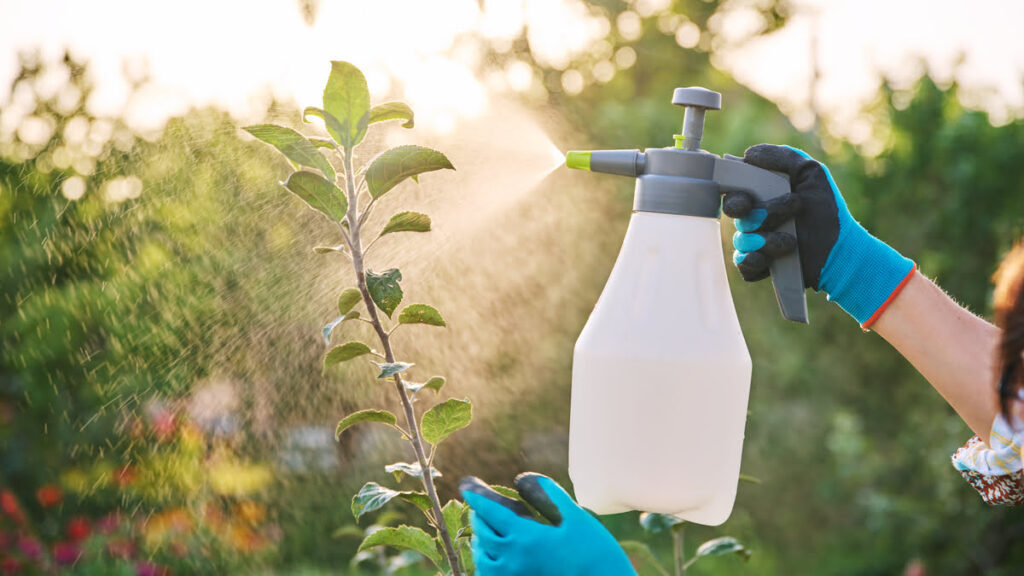
We live in an age of growing environmental awareness, and it’s no surprise that more and more people are turning to natural methods of plant care. In search of simple and safe solutions, many amateur gardeners are discovering surprising yet effective alternatives. One such solution is gelatin fertilizer – a homemade formula that stands out not only for its simplicity, but also for its impressive results.
Though most commonly associated with desserts, gelatin turns out to be a powerful aid for plant growth – especially for potted plants.
Gelatin as Fertilizer
Gelatin is a natural, animal-derived protein made up of glycine, proline, and hydroxyproline – amino acids that play an important role not only in the kitchen but also in plant care. Thanks to its solubility and bioavailability, gelatin can be used as a safe and effective fertilizer. It is increasingly seen as an eco-friendly alternative to commercial products, especially in sustainable gardening.
Gelatin fertilizer works mainly due to its organic nitrogen content, which is slowly released into the soil. Nitrogen is essential for healthy plant growth, supporting leaf and stem development and encouraging fuller, bushier growth. Additionally, it improves soil structure and stimulates root system expansion.
One of the advantages of gelatin-based fertilizer is its long-lasting effect. Nutrients are not immediately leached out but are released gradually, helping plants better withstand environmental stress such as temporary drought or temperature fluctuations.
How to Make Gelatin Fertilizer?
Homemade gelatin fertilizer is quick to prepare and doesn’t require any special tools. It’s one of the simplest ways to naturally boost plant health – especially for houseplants. All you need are a few basic ingredients commonly found in most kitchens.
What You’ll Need:
- 1 teaspoon of plain, unflavored gelatin
- 250 ml (about 1 cup) of hot water
- 2 liters (about 8.5 cups) of cold water
Preparation:
First, dissolve the gelatin in hot water. Then add the cold water and stir well. The prepared solution can be used immediately to water your plants.
Store any leftover fertilizer in the refrigerator for up to 2–3 days.
How to Use Gelatin Fertilizer?
Used regularly and correctly, gelatin fertilizer can significantly improve plant condition and stimulate growth.

- The best time to begin treatment is in early spring, as plants enter their active growth phase. The solution can be applied throughout the growing season until fall, especially for weakened plants, those recently repotted, or flowering species in need of extra nutrients.
- Gelatin fertilizer works best when applied as a liquid directly into the soil. Once absorbed, the nutrients reach the roots, strengthening the plant from within.
- Apply every 2-3 weeks, particularly for high-demand or recovering plants. Be cautious not to overdo it – too much organic matter can negatively affect the soil. The best results come from regular but moderate watering.
Which Plants Benefit Most from Gelatin Fertilizer?
Gelatin fertilizer is especially effective for plants that grow vigorously, bloom frequently, or need help recovering after winter or transplanting. Thanks to its high organic nitrogen content, it promotes strong root development, supports new leaf growth, and enhances plant health during active growth phases.
Ornamental and Potted Plants
Gelatin fertilizer is particularly recommended for popular houseplants like peace lilies, monsteras, African violets, and ferns. It works especially well on green foliage plants, which often respond with richer color and more shoots after regular use.
For balcony flowers such as geraniums, petunias, or begonias, gelatin fertilizer offers natural support during blooming periods – providing essential nutrients without the risk of over-fertilization.
Garden Plants and Perennials
In the garden, gelatin fertilizer can be used for roses, lilies, and peonies. These plants benefit from additional nutrients during periods of rapid growth and flowering. Regular application can increase bud production, prolong blooming, and improve overall plant vitality.
Vegetables and Herbs
Gelatin fertilizer isn’t just for flowers – vegetables like tomatoes, peppers, lettuce, and herbs like basil, mint, and cilantro also respond well to its organic nitrogen. For edible plants, it’s important to use fertilizer sparingly: once every few weeks is enough to avoid excessive protein buildup in the soil.
Which Plants Should Be Watered with Gelatin?
Plants that require frequent nitrogen feeding, fast-growing potted species, large leafy perennials, and balcony flowers – all benefit from watering with gelatin-based fertilizer. If a plant shows signs of poor color, slow growth, or few new shoots, this natural method can provide the support it needs to recover.
Gelatin as a Natural Aphid Treatment
While gelatin is most often used as a fertilizer in gardening, more and more people are exploring its potential protective effects. In home gardens, it can serve as a natural method to combat aphids – pesky pests that feed on plants, stunting their growth and causing leaf deformation.
Gelatin works against aphids not through chemicals, but by mechanical action. When dissolved in water and sprayed onto plant surfaces, it forms a thin, gel-like film that clogs the insects’ spiracles – tiny openings they use to breathe. As a result, the aphids gradually die off – similar to the effects of using plant oils or silicone-based sprays.
How to Spray Plants with Gelatin?
For best results, the gelatin spray should be applied thoroughly to entire aphid colonies. The main challenge lies in reaching pests hidden inside curled leaves, so the treatment is most effective when infestations are detected early – before leaves begin to curl inward in response.

Gelatin can also be used in combination with other natural remedies, such as garlic, onion, nettle, or yarrow infusions. These mixtures not only strengthen plants but also improve spray coverage and overall effectiveness.
Keep in mind that gelatin is not a registered plant protection product, and its effects are supplementary. No official dosage standards exist for pest control, so this method should be considered a natural alternative – not a professional aphid treatment.
Gelatin Fertilizer in Organic Gardening
As interest in sustainable growing methods continues to rise, gelatin-based plant watering is gaining popularity as an eco-friendly alternative to synthetic fertilizers. Thanks to its natural origin, gelatin is completely safe for both the soil and soil microbiota. It contains no synthetic additives that could disrupt the biological balance of your garden.
As it breaks down naturally, gelatin fertilizer leaves no harmful residues in the soil. The organic substances it contains are quickly processed by soil microorganisms, helping prevent buildup while enhancing biological activity in the root zone. This makes it an excellent choice for gardeners who prioritize environmental protection and healthy plant development.
However, it’s important to remember that gelatin primarily supplies nitrogen – the nutrient responsible for growth. To fully meet a plant’s nutritional needs – especially flowering or fruiting varieties – supplement with additional sources of potassium and phosphorus. Great options include wood ash, compost, or nettle extract.
Test Before Use
Although gelatin is gaining popularity among natural gardening enthusiasts, its effectiveness has yet to be confirmed by large-scale scientific research. Most of the knowledge we have comes from positive user reports and home gardening experience.
Currently, gelatin is not listed as an approved input for certified organic farming within the European Union. For this reason, caution is advised – especially when using it on plants of high aesthetic or economic value.
It’s best to start by testing the solution on a small number of plants and monitoring their response over several weeks. This will help minimize risk and determine whether a particular species tolerates gelatin-based fertilizer well.
Gelatin Fertilizer – Summary
Gelatin fertilizer proves that natural plant care methods can be both simple and effective. This unassuming kitchen staple is finding new uses in home and organic gardening. Thanks to its nitrogen content, it promotes growth, strengthens roots, and improves overall plant condition – for both potted and garden plants alike.

Although gelatin is not an officially registered plant protection product or certified organic input, numerous user testimonials point to its positive effects. As with any method, the key to success is moderation, consistency, and observation.
For those seeking affordable, natural, and accessible solutions, gelatin may prove to be a valuable ally in everyday plant care. Still, it should be seen as part of a broader approach – complemented by other natural sources of nutrients.



